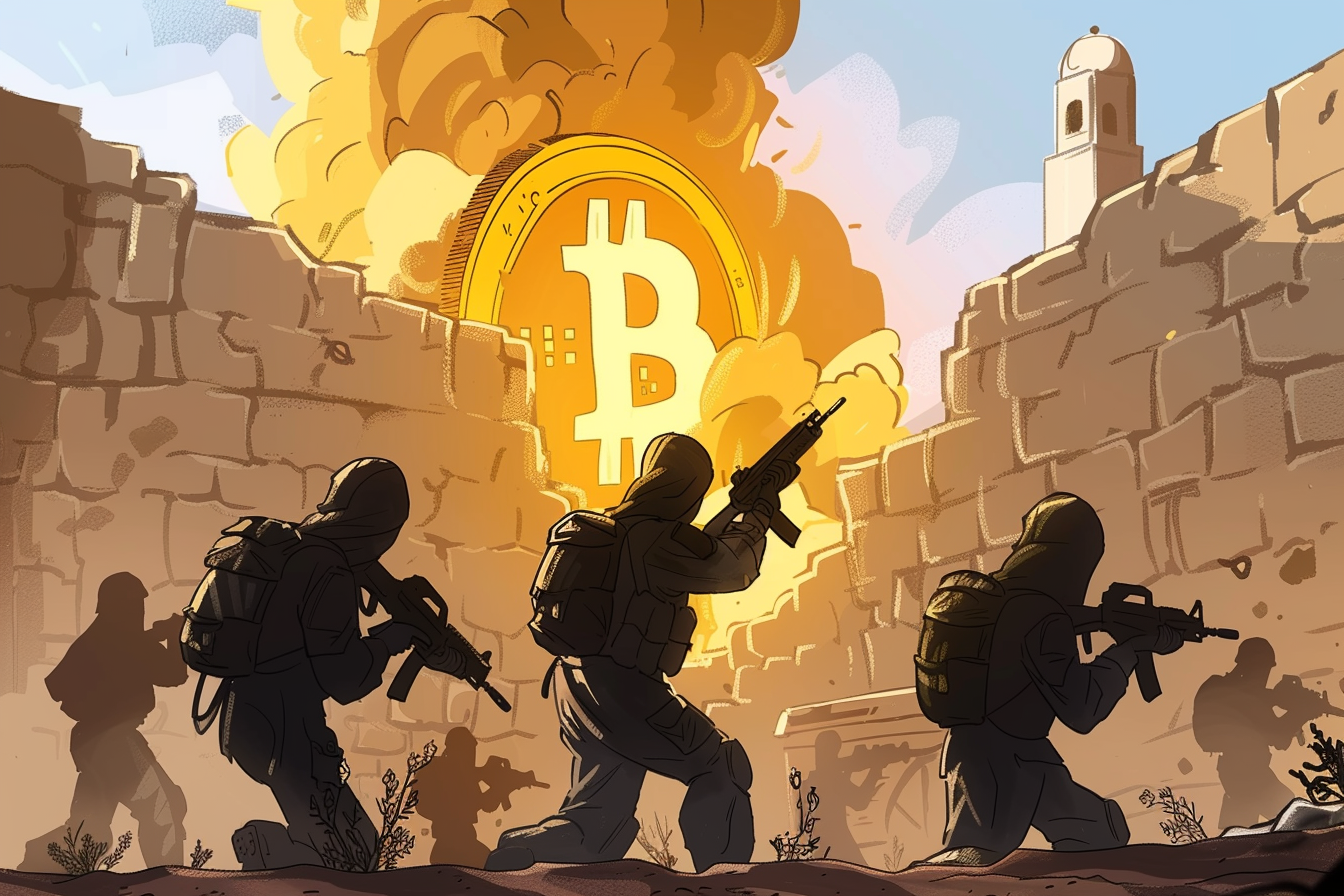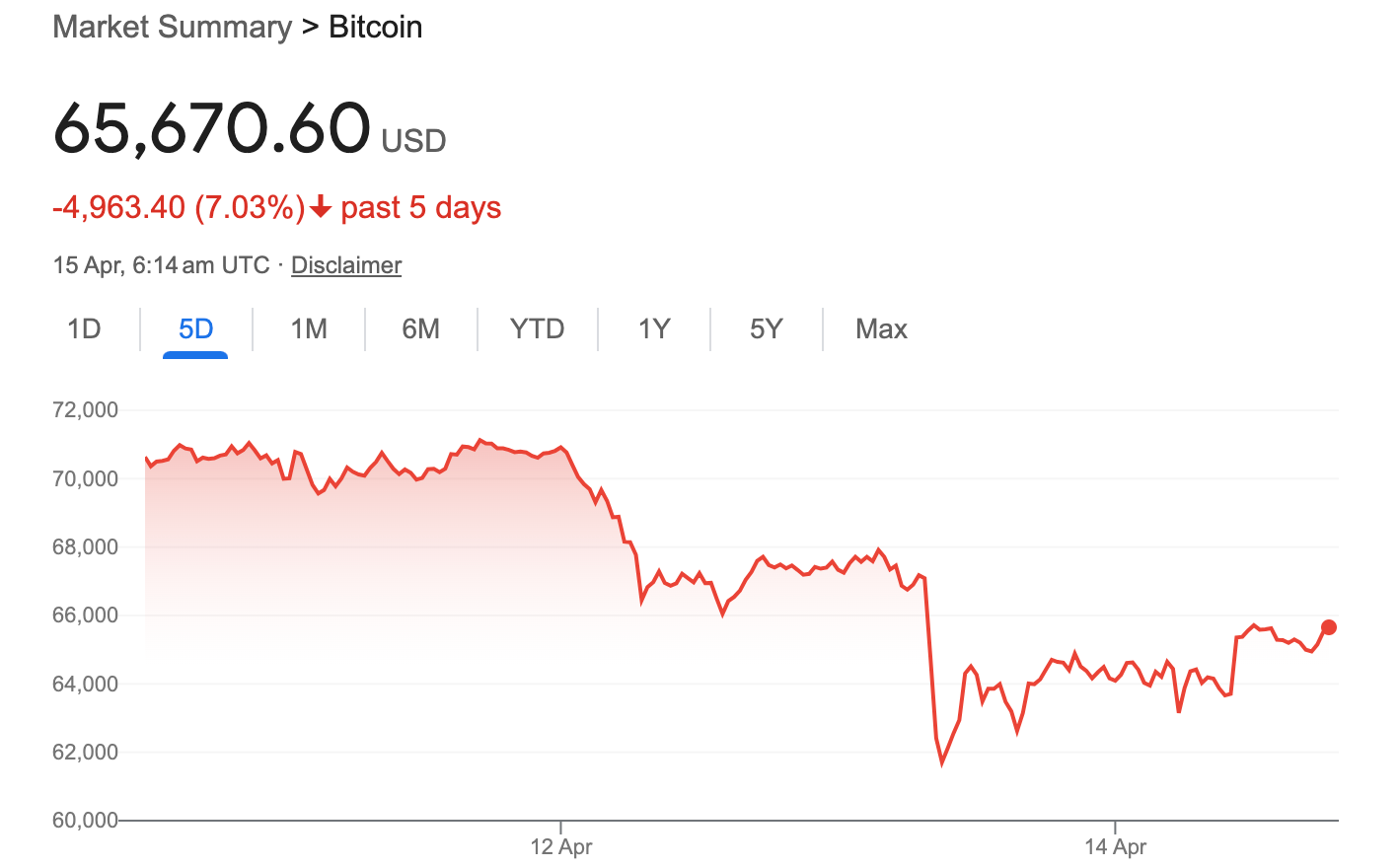Is World War III Enough to Shake Bitcoin?

Hey there! Just a quick note to let you know that this article is brought to you by Sygnum. Sygnum is a global digital asset banking group, founded on Swiss and Singapore heritage. They empower professional and institutional investors, banks, corporates and DLT foundations to invest in digital assets with complete trust. The team enables this through our institutional-grade security, expert personal service, and portfolio of regulated digital asset banking, asset management, tokenization, and B2B services.
In Switzerland, Sygnum holds a banking license. In Singapore, it has the Capital Markets Services and Major Payment Institution licenses. The group is also regulated in the established global financial hubs of Abu Dhabi and Luxembourg.. So, please sit back, relax, and enjoy today's news, knowing that it's made possible by our friends at Sygnum.

Bitcoin suffered its biggest pullback since March 2023 after Iran launched air attacks on Israel. The leading cryptocurrency fell to as low as $62K over the weekend but has since recovered to the high $65K zone.
But as the markets consider repricing the risk of Israel's retaliation to Iran's air attacks, we question how damaging the intensifying war in the Middle East will be for crypto, especially as Western governments are drawn in.

In a troubling turn of events, the regional crisis escalated as Iran launched missiles and attack drones towards Israel, in retaliation for an attack in Syria that claimed the lives of high-ranking Iranian military officials.
While the stock market declined on Friday as investors prepared for a potential attack on Israel, it's worth noting that crypto traders were among the first to react to a major geopolitical event, given that Iran's actions took place when traditional markets were not open.
Prices for Bitcoin and other cryptocurrencies fell significantly last week, creating a huge risk-off moment. As liquidations reached extremes, the weekend risk was indeed serious.
As Coinglass reported, before the Sunday event unfolded, crypto positions were significantly liquidated on Friday and Saturday.
During this period, derivatives saw a staggering $1.5 billion worth of bullish crypto bets being liquidated. After reaching a peak of $73,798 in mid-March, Bitcoin has experienced a decline.
War is Good for Business?
Historically, war and unrest in the Middle East have been good for Bitcoin, or at least not as bad as the stock market. World stocks started the week in the red, with an Asian stocks gauge down to a six-week low after the Iranian attack on Israel and the anticipated retaliation.
Since Hamas's attack on Israel on 7 October 2023, Bitcoin's price has unreservedly been on the rise.
In January, the introduction of dedicated US spot Bitcoin exchange-traded funds (ETFs) led to a surge in demand for Bitcoin, reaching an unprecedented peak, overshadowing the Israel-Hamas war.
Now, with Bitcoin halving anticipated to take place around April 20, the event is generating excitement among crypto investors as it will reduce the fresh supply of the currency by half. However, given the recent surge in Bitcoin's value, there is growing skepticism about whether the halving will have the same impact on prices as in the past.
As the Bitcoin halving isn't a genuine "vol event" characterized by uncertainty, the fundamental argument is that short-term volatility will disappoint investors.
At the same time, the US and its allies can't help themselves from intervening in the Middle East conflict. Israel may have fended off 99% of Iran's 300 drone strikes but its success was aided by "critical assistance provided by the U.S. and other Western and Arab partners," according to the WSJ. "American, British, and Jordanian warplanes played an especially important role in downing drones," the outlet stated.
War on War
The West's involvement has inspired the term "World War III" to be thrown around in the media, albeit rather recklessly. "The US is basically facing World War III — but Biden & Co. aren’t acting like it," a New York Post headline proclaims, referencing the Russia and Ukraine conflict as well.
The big question for global markets is what will Israel do next? Trading patterns suggest bets are equally spread on both sides of Israel's action. One side of the positioning shows that Israel stays on the sidelines as the US has made it clear it will not support a retaliatory attack on Iran. Instead, the country chooses to up international pressure on Iran.
The other side weighs up the risk of a retaliation cycle. With the Middle East crisis escalating, there are concerns about increased volatility in trading.
Bitcoin vs Gold
Gold poses a big challenge to digital assets. In recent weeks, the yellow metal has claimed a large portion of the haven bets, limiting Bitcoin's appeal. Gold was already on a bull run, hitting a new high of $2,431.29 but news of Iran's air strike and uncertainty surrounding Israel's response have inspired more confidence in the commodity.
Over the weekend, gold rose 0.4% to US$2,354.62 an ounce after rising by 0.6% last week, as the conflict in the Middle East intensified.
Bitcoin, once nicknamed "digital gold" has been sold as a hedge against inflation and market turmoil but its resilience against global issues is proving to be inferior to gold.
If WWIII was to break out, gold would offer a more formidable safety net than its digital, decentralized counterpart. Of course, we'd likely have more problems to worry about than that.
